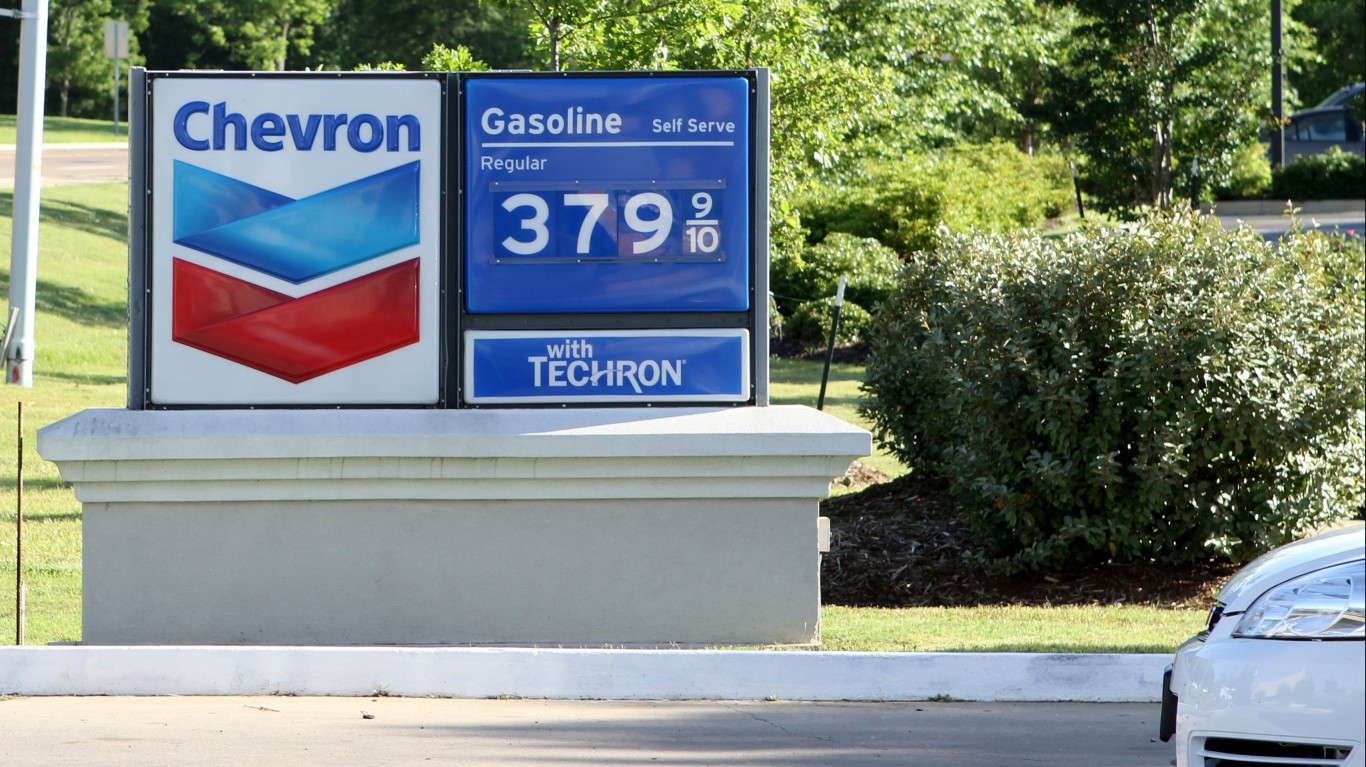Energy
Oil Price Surge Pushes Gas Above $3 in These States

Published:
Last Updated:

Oil prices have risen an extraordinary 69% since the U.S. presidential election, and take gas prices with them. The cost of a gallon of regular tops $3 in four states.
The best predictor of gasoline prices is oil prices. They almost always outweigh refinery costs, transportation costs and state gas taxes. Crude oil prices, which were $36 a barrel at the end of November, have risen to $63, the highest price in a year.
According to AAA Fuel Gauge, the average price for a gallon of regular nationwide is $2.717. That is up from $2.419 a month ago. Over the past four weeks, the increase has been fairly steady.
Oil prices have risen for three reasons, none of which is likely to change soon. The first is that global stockpiles have fallen. On February 10, Bloomberg reported: “Oil rose again to extend the longest run of gains in two years with an industry report showing falling U.S. crude stockpiles the latest sign of tightening globally supplies.”
The other factor has been called “post-vaccine euphoria.” The base of this is that the economy has already started to spring back from the COVID-19 pandemic. If the rate of vaccine distribution quickens, global economies will reopen and gross domestic product and employment will surge, and with this, the demand for oil.
Finally, refinery shutdowns due to the huge cold and snowstorms that have run through Texas. These massive refineries are critical to U.S. supply.
Gas prices in some states are either above or below the national average for several reasons. The first is proximity to refineries. States near the huge refineries along the Gulf of Mexico tend to have the lowest prices in the country. Notably, the four states with the lowest per-gallon gas prices are Mississippi ($2.36), Texas ($2.39), Oklahoma ($2.44) and Louisiana ($2.36). The transportation costs from refineries to nearby areas shaves the average price of gas down, compared with much of the rest of the nation.
Another primary factor is gasoline taxes. According to the American Petroleum Institute survey of state gas taxes as of January 1, the U.S. average is $0.5523 a gallon. States with low gas taxes include Missouri ($0.3582), Mississippi ($0.3719) and New Mexico ($0.3738). The states with the highest gas taxes are California ($0.8145) and Pennsylvania ($0.7710).
Four states currently have average prices for a gallon of regular of over $3. California’s $3.67 price is clearly affected by its gas tax. In Hawaii, the price of $3.39 is affected by a relatively high gas tax at $0.6524 per gallon. However, the cost of transportation to islands that are 2,500 miles from the west coast is also a major contributor to Hawaii’s price. And, the price for a gallon of regular in Washington State is $3.10. Its gas tax is a high $.678. The price in Nevada is $3.01.
Gas prices nationwide were last at $3 a gallon in 2014. There is still a long way to go before prices reach that level again. However, crude prices are on a sharp climb upward, which means gas prices will continue to increase, for now, as well. Moreover, gas prices can affect overall living costs in some places. This is the cost of living in every state in America.
Click here to see which states have the highest gas taxes in America.
Are you ahead, or behind on retirement? For families with more than $500,000 saved for retirement, finding a financial advisor who puts your interest first can be the difference, and today it’s easier than ever. SmartAsset’s free tool matches you with up to three fiduciary financial advisors who serve your area in minutes. Each advisor has been carefully vetted and must act in your best interests. Start your search now.
If you’ve saved and built a substantial nest egg for you and your family, don’t delay; get started right here and help your retirement dreams become a retirement reality.
Thank you for reading! Have some feedback for us?
Contact the 24/7 Wall St. editorial team.